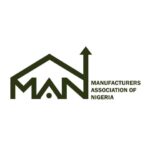Analysis of 2020 financial results by Daily Trust has revealed that Nigerian manufacturing firms on average are paying double the tax rate paid by their peers in the financial services industry.
This is despite a difficult operating environment occasioned by inadequate power supply, poor logistics infrastructure and foreign exchange shortages which impedes the sourcing of spare parts or raw materials.
- Gunmen kill 31 as Buhari tasks service chiefs to be proactive
- Kano approves N8.9bn for proposed Buhari interchange
Twenty-one large firms comprising 10 manufacturers and 11 banks show the trend of much lower effective tax rates for financials compared to the real sector operators.
The 2020 effective tax rates of other manufacturing firms sampled include, Dangote Cement, Cadbury (30 percent); Nestle Nigeria (35.33%), Flour Mills (34%), Nigerian Breweries (36.35%), Honeywell Flour (32.14), Dangote Sugar (26), NASCON (31.14), Lafarge Africa (20.6) and BUA Cement (13.44).
This compares with banks who have much lower effective tax rates including: Zenith Bank (9.89 percent), Access Bank (12.28 as at Q3 2020), Fidelity Bank (7.2), FCMB (10.5), GTBank (15.4), Stanbic IBTC (12.15), First Bank (15.59), UBA (13.72), Union Bank (3.25), Sterling Bank (7.22), and Unity Bank (8).
The eleven banks analyzed paid a total of N123.3 bn in taxes even though they are much more profitable than the 10 manufacturing firms who paid a combined N157.17bn in taxes in 2020.
The total combined Profit Before Tax (PBT) for the 11 financial firms was N1.005trn, compared to N569.8bn in PBT for the 10 manufacturing firms.
For instance, Dangote Cement and the largest bank by profits – Zenith Bank shows some stark differences.
While Dangote Cement has an effective tax rate of 26 percent and will pay N97.24 bn in taxes in the 2020 financial year, Zenith Bank’s effective tax rate was equivalent to 9.89 percent, and the bank will pay taxes of N25.29bn for 2020.
Looking at the trend from previous years – 2020, 2019 and 2018, Dangote Cement paid N236.6bn as corporate tax. This amounts to a yearly average tax of N79bn. The leading cement firm ended the three years with a profit after tax of N867bn, translating to an average profit of N287bn.
In all, Dangote Cement Plc is way ahead of other companies and banks in terms of profitability and tax payment.
BUA Cement Plc, which became one of the leading cement manufacturing companies last year following merger of Cement Company of Northern Nigeria Plc and Obu Cement Plc, recorded a profit of N131.1 bn in 2019 and 2020. This means the firm posted an average profit of N65.5bn in the last two years and paid a combined tax of N14.1bn or an average tax of N7.1bn.
Lafarge Africa Plc, which had a rough patch for a long period before turning the corner in 2019, recorded a combined profit of N46.3bn in 2019 and 2020 and paid a tax of N6.7bn in 2020.
The banking sector has also been a great contributor in terms of tax to the government going by the figures of some of the banks that have announced their audited 2020 results.
For instance, Zenith Bank Plc has paid a total of N81.8bn as tax from 2018 to 2020, translating to an average tax of N27.3bn a year. The bank ended with a combined profit of N631bn and an average of N210bn every year in the last three years.
Guaranty Trust Bank Plc has paid a tax of N102.3bn from 2018 to 2020 or an average of N34.1bn and posted a profit of N582.9bn in three years, which amounts to N194.3bn on yearly average.
United Bank for Africa Plc has contributed a total of N68.5bn to government coffers as corporate tax in the last three years, meaning that it has contributed an average of N23bn every year.
The pan-African bank has ended up making a profit of N281.5bn in three years and an average of N93bn a year, from where it recommended dividend for shareholders.
Stanbic IBTC Holdings Plc, which also released its results last week, has paid a total of N41.1bn as tax in three years and made a profit of N234.6bn in three years or N77.5bn yearly average.
Why higher taxes for manufacturers?
While Nigeria’s effective tax rate for most corporations is at 32 percent (including education tax), Daily Trust findings reveal that the banks are not entirely to blame for having much lower effective tax rates as Nigeria’s tax laws have provided numerous incentives through which firms can lawfully avoid paying the maximum tax rate.
For banks, interest earned on federal government debt securities such as treasury bills and bonds are tax free, as well as for state government debt and corporate bonds, according to a tax exemption issued in 2011.
The tax exemption was granted for a period of 10 years, with the exception of Bonds issued by the Federal Government, which shall continue to enjoy such exemptions.
Government had put in place the exemptions 10 years ago to enable the growth of Nigeria’s debt markets. The debt markets have grown spectacularly since 2011.
Forensic Accountant and Managing Director Qeeva Advisory Limited, Matthew Ogagavworia, said: “What the banks are enjoying is not abnormal, it is available across board, the only difference is that because the banks have more liquidity, they will invest more in the non-taxable bonds which at the end of the day bring down their taxable income.
“But the rule says, all income from these bonds is tax free, it was not designed to favour the banks.
“If there is a sector that has enjoyed government incentives, then it has to be manufacturers because the banks do not enjoy the government pioneer statues incentive for instance.”
The Director General of the Lagos Chamber of Commerce and Industry (LCCI), Dr Muda Yusuf, was of the view that Nigeria has entrepreneurs that can make things happen to create wealth, generate employment, and generate tax revenue for the government but they need to be supported by far better infrastructure.
He said: “There is no way to industrialize if there is poor logistics, the country cannot industrialize where it generates only 4,000 Megawatts of electricity. It cannot industrialize where the domestic interest rate is around 20%.”

 Join Daily Trust WhatsApp Community For Quick Access To News and Happenings Around You.
Join Daily Trust WhatsApp Community For Quick Access To News and Happenings Around You.


